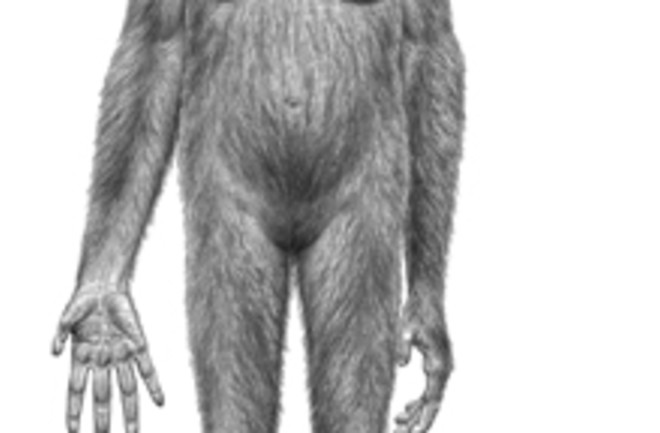The bones of our ancestors do not speak across time with ultimate clarity. The fossils with which scientists reconstruct our family tree are often fragments that offer hints and clues to where we came from. So it comes as no surprise when, as part of the flow of science, researchers offer counter-interpretations to even the most famous of finds. That's what happening to Ardi. Last October Ardipithecus ramidus hit the main stage when, after 17 years of study, a large team led by paleoanthropologist Tim White published its work in the journal Science. The 4.4-million-year-old find shakes up our understanding of our own history, White said—primarily the story of how and when we learned to walk. Ardi cast doubt on the widely accepted view that our ancestors became bipeds because they left the forest and entered a flatland savanna habitat that demanded it. But Ardi appeared to be a kind of hybrid, comfortable in the trees and on the ground. And, White said, analysis of the site where the fossil was found indicated that Ardi lived in a woodland habitat. If it's true that early humans walked in the woods, then the "savanna hypothesis" would be swept away. But not so fast. In today's edition of Science, two teams of scientists respond (1, 2) with doubts about the story of Ardi.
Scientist Smackdown: Did "Ardi" Change the Story of Human Evolution?

Newsletter
Sign up for our email newsletter for the latest science news
0 free articles left
Want More? Get unlimited access for as low as $1.99/month
Stay Curious
Sign up for our weekly newsletter and unlock one more article for free.
View our Privacy Policy
Want more?
Keep reading for as low as $1.99!
Already a subscriber?
Find my Subscription
More From Discover
Stay Curious
Subscribe
To The Magazine
Save up to 40% off the cover price when you subscribe to Discover magazine.
Copyright © 2025 LabX Media Group
